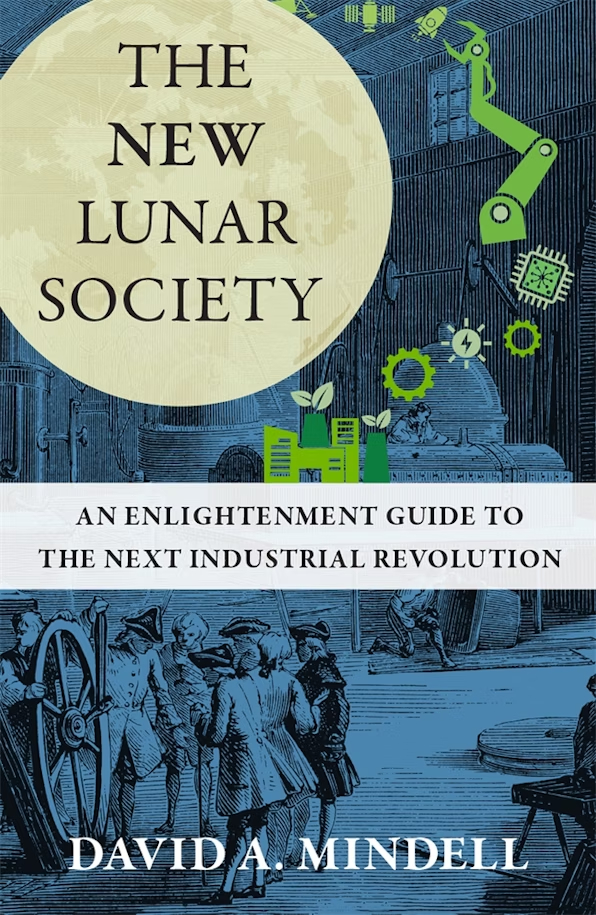The New Lunar Society

It’s the way that we tell stories that makes a difference. The narrative, the focus on the details, the selection of the historical period to examine, and the conclusions are a subtle craft that one could try to master throughout her career without success—that could not be said for David Mindell. His latest book, “The New Lunar Society: An Enlightenment Guide to the Next Industrial Revolution” is a rebase on the industry processes versus product approach of science technology and innovation.
The current capitalist trend with short-term profit maximization, short-term investments and funding schemes has a direct negative impact on the way that the core infrastructure, meaning every industry, core service or utility that serves as the backbone on top of which we have built modern economies, functions. Even research funding is trapped in this non-virtuous circle and further accelerates these effects.
By focusing on the period of the first industrial revolution and its pioneering figures—by returning to the roots of our industrial societies—Mindell seeks to shed light on the current state of things, showcasing a brilliant use of the history of technology. One of the main arguments throughout the chapters of the book is the call for the revival of the status of industry into a core value itself.
Our societies are still industrial, and the way industry functions, develops, does research and conforms to sustainable working conditions continues to shape society as a whole.
Mindell notes that “the ideals of [British] industrialization missed the environment and missed labor.” He asks, “So at this point, how do we rethink industrial systems to do better?” While Mindell argues that industry must power an economy that grows while decarbonizing, this conflicts with current global economic data and working conditions.
As automation and AI are integrated into the industry processes, their character will be defined more by their use than by the stated intentions of research labs. Thus, an industrial policy that promotes not only short-term efficiency but also takes into account externalities like climate change, energy consumption, and social impact should be enforced.
Mindell also makes a crucial point about repairing and maintaining systems. He states, “We’ve undervalued how to keep things running while simultaneously hollowing out the middle of the workforce. And yet, operations and maintenance are sites of product innovation. Ask the person who fixes your car or dishwasher. They’ll tell you the strengths and weaknesses of every model.”
Ultimately, Mindell’s greatest contribution is his argument that industrial policy is not a relic of the past or a technocratic issue. Instead, it is a central discourse about our collective future.
For more detailed book reviews, check out MIT News and PopSciBook.